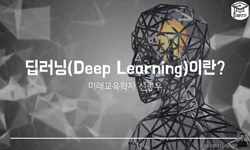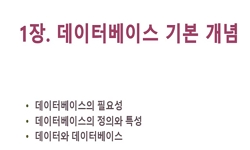Artificial intelligence (AI), which includes machine learning and deep learning has been introduced to nursing care in recent years. The present study reviews the following topics: the concepts of AI, machine learning, and deep learning; examples of A...
http://chineseinput.net/에서 pinyin(병음)방식으로 중국어를 변환할 수 있습니다.
변환된 중국어를 복사하여 사용하시면 됩니다.
- 中文 을 입력하시려면 zhongwen을 입력하시고 space를누르시면됩니다.
- 北京 을 입력하시려면 beijing을 입력하시고 space를 누르시면 됩니다.
https://www.riss.kr/link?id=A106824683
- 저자
- 발행기관
- 학술지명
- 권호사항
-
발행연도
2020
-
작성언어
English
- 주제어
-
등재정보
KCI등재
-
자료형태
학술저널
- 발행기관 URL
-
수록면
5-9(5쪽)
- DOI식별코드
- 제공처
- 소장기관
-
0
상세조회 -
0
다운로드
부가정보
다국어 초록 (Multilingual Abstract)
Artificial intelligence (AI), which includes machine learning and deep learning has been introduced to nursing care in recent years. The present study reviews the following topics: the concepts of AI, machine learning, and deep learning; examples of AI-based nursing research; the necessity of education on AI in nursing schools; and the areas of nursing care where AI is useful. AI refers to an intelligent system consisting not of a human, but a machine. Machine learning refers to computers' ability to learn without being explicitly programmed. Deep learning is a subset of machine learning that uses artificial neural networks consisting of multiple hidden layers. It is suggested that the educational curriculum should include big data, the concept of AI, algorithms and models of machine learning, the model of deep learning, and coding practice. The standard curriculum should be organized by the nursing society. An example of an area of nursing care where AI is useful is prenatal nursing interventions based on pregnant women's nursing records and AI-based prediction of the risk of delivery according to pregnant women's age. Nurses should be able to cope with the rapidly developing environment of nursing care influenced by AI and should understand how to apply AI in their field. It is time for Korean nurses to take steps to become familiar with AI in their research, education, and practice.
동일학술지(권/호) 다른 논문
-
- 한국여성건강간호학회
- ( Sue Kim )
- 2020
- KCI등재
-
In this issue of the Korean Journal of Women Health Nursing March 2020
- 한국여성건강간호학회
- ( Sue Kim )
- 2020
- KCI등재
-
보조생식술을 받는 여성의 불확실성과 배우자 지지가 난임 관련 삶의 질에 미치는 영향
- 한국여성건강간호학회
- 이혜신 ( Hye Shin Lee )
- 2020
- KCI등재
-
임부의 스트레스, 우울 및 배우자와 가족의 지지가 모성 정체성에 미치는 영향
- 한국여성건강간호학회
- 서혜정 ( Hye-jung Seo )
- 2020
- KCI등재





 ScienceON
ScienceON







